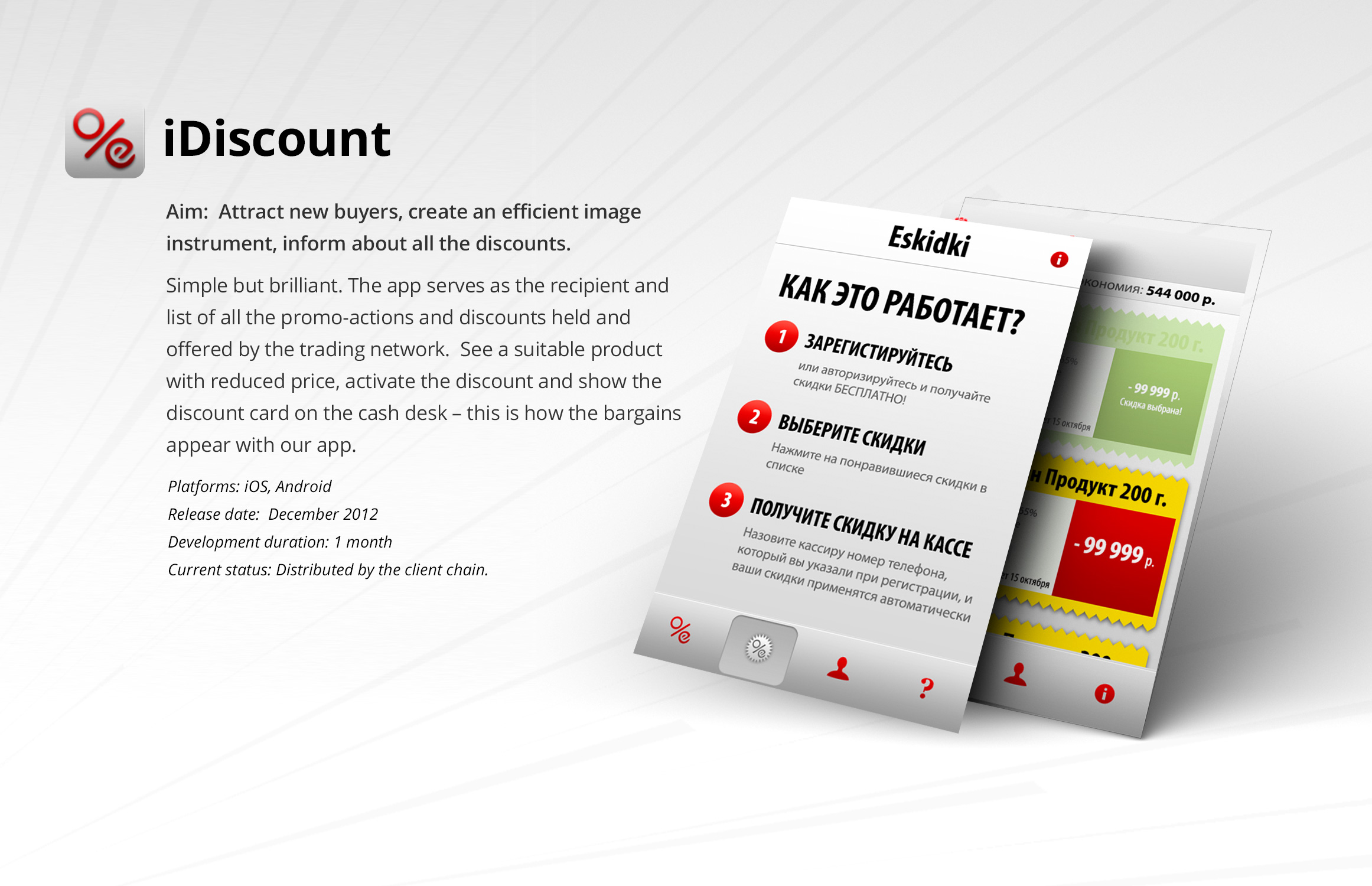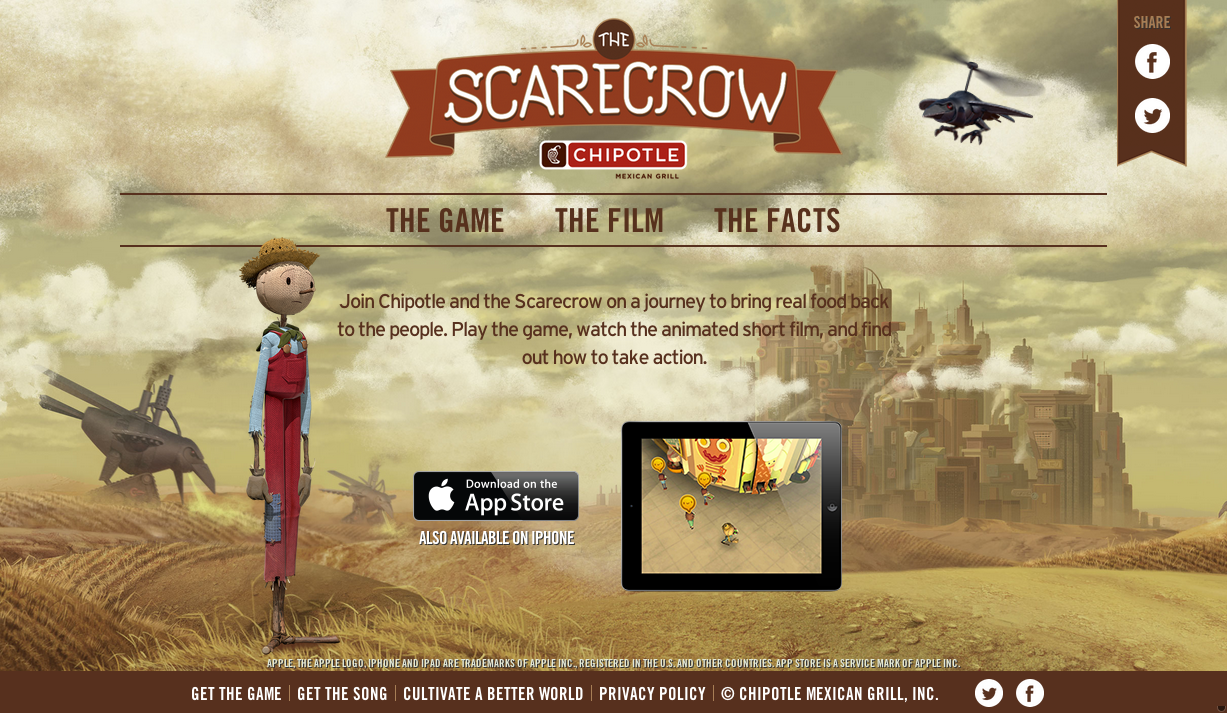MOBILE APPS FOR RETAIL
So, you’ve made it. You’ve given up to the tension of hundred market analysts, bloggers, friends, grannies, and finally launched your app. You found some application you wanted yours to look like, you asked for everyone’s advice and ta-da, you’re a happy owner of a parking space on AppStore! You even have your budget planned for constant financial injections in app promotion, as your friends advised you. But those 2 new teenagers who did buy sunglasses on the app is not completely the new-market and unprecedented-business-growth result you were promised to obtain. What’s wrong here?
The thing is that everybody knows that he needs an app, but very rarely one has a very clear idea of why he needs this. I say that because almost every week we have a new guy who wants to develop another app for his business or ego. When we ask what his business development model for the app looks like, the answer is usually something like “My competitor has one am I worse than him? ”, which is as strange as If I’d buy a suspension spring because my neighbour has bought one, though he has a Ford Mustang and I have a horse. Of course, as for a mobile developer, such approach is a real bonanza, but my reason cannot accept that. That’s why I came up with the idea of the PRESUMPTION OF UNNECESSITY.

What does it mean? It means that as a retailer, you, presumably, don’t need an app. Merchants on 17th-century Jamaica sold rum without having even a website. If one has a product that is in real demand, he/she will sell it even if their store’s technology level got stuck in the Stone Age. And unless you’re a Starbucks, with an army of Internet geeks as clients, who take shower with their iPhones, or an Amazon, with 237 mln users, where even by law of large numbers there must be people who are used to shopping from mobile, you are likely to face a lot of difficulties to make the folks around shop through your app. Especially if you’re an offline store with a really motley auditory. For the money you spend on app promotion you can hold an extra Black Friday and earn 5 times more than in a year of the app support. And if you have an online-shop already and want to try selling mobile, being inspired by the growing mobile sales numbers, why not starting with a mobile website? It’s cheaper, it’s already cross-platform. Of course it has a lot of problems as poor design and complete Internet-dependence, but you can check the trend with it at least, and decide where to move further. If you don’t have an online-shopping website, app is also useless in most cases. An app needs a constant product database updates online, and if you put one online, first at least try with a website, it’s much cheaper. Then, you’ll see the further steps yourself.
So, am I going to quit the mobile app development sales job and that’s why I criticize the mobile apps for retail? Are the money your partner assigned for a mobile app a waste of resources? No. While the argument of converting a mobile app into one more shopping place for your customers still seems a bit risky, mobile app can be good in other major things:
– Client retention
– Brand building.
Client retention.
Nobody can better remind your client about you than somebody who spends all the time with him or her. And if you don’t have your client’s spouse or child as your secret agent to tell your brand’s name 3 times a day during a meal, you can turn to a mobile phone. The only thing I have with me more often than a mobile phone is my own body, but unfortunately for you as a retailer, you can’t influence the latter. Meanwhile the former is waiting for you to use it. Push-notifications, iBeacon, even light being on your side, you can always keep your client up to visit you. But the most efficient instrument here is discounts. Can I be a happier client if my app constantly offers me how to save money on something? Having launched our iDiscount (or Eskidki- locally) app for one of local retail chains, we saw it ourselves: we can save a fortune if have our app turned on and everyday updates for different kinds of products sales popping up on our phones. All I need is to activate an offer and have the discounted goods on my hands.  What’s good about that is that you get your clients addicted to your app. Which means that one day you can put anything additional in the app, and they will use it. If you have your clients used to your discount purchases app, you’ll easily transit them to regular purchases from the very smartphone: – they’ll just loose interest in shopping any way else.
What’s good about that is that you get your clients addicted to your app. Which means that one day you can put anything additional in the app, and they will use it. If you have your clients used to your discount purchases app, you’ll easily transit them to regular purchases from the very smartphone: – they’ll just loose interest in shopping any way else.
Brand building.
It’s very obvious and banal, but take a look at Red Bull. Have anyone once seen and app selling their drinks? NO… Now look here: it has 1 – 5 mln downloads. Theoretically, everyday around 3 mln people get the “Red Bull” lettering in front of their eyes. You’d say that Red Bull is a very different story, and everybody knows without an app that Red Bull is Active Sports. But ok, check out the gorgeous Chipotle’s Scarecrow. The game makes people think of Chipotle’s brand while having time of their lives saving the world from modified food. What’s more important, Chipotle becomes associated with naturality for those app users. It’s just a matter of fantasy, that’s all. And here the mobile technologies are your best friends too. So, summing it all up, this post is not aimed to make you give up on the app for your retail business. Mobile e-commerce is boosting immensely and you certainly need to be in this train with other successful businesses. See H&M, Forever 21, Zara, which are enormously popular. But please have the strategy for your app. Why is it so important for us as a simple mobile and web solution company? During our 8 years of experience we’ve seen something and we have something to advise too. But it’s much easier to provide some quality solution if we know what it is for and how it is going to work.
So, summing it all up, this post is not aimed to make you give up on the app for your retail business. Mobile e-commerce is boosting immensely and you certainly need to be in this train with other successful businesses. See H&M, Forever 21, Zara, which are enormously popular. But please have the strategy for your app. Why is it so important for us as a simple mobile and web solution company? During our 8 years of experience we’ve seen something and we have something to advise too. But it’s much easier to provide some quality solution if we know what it is for and how it is going to work.
